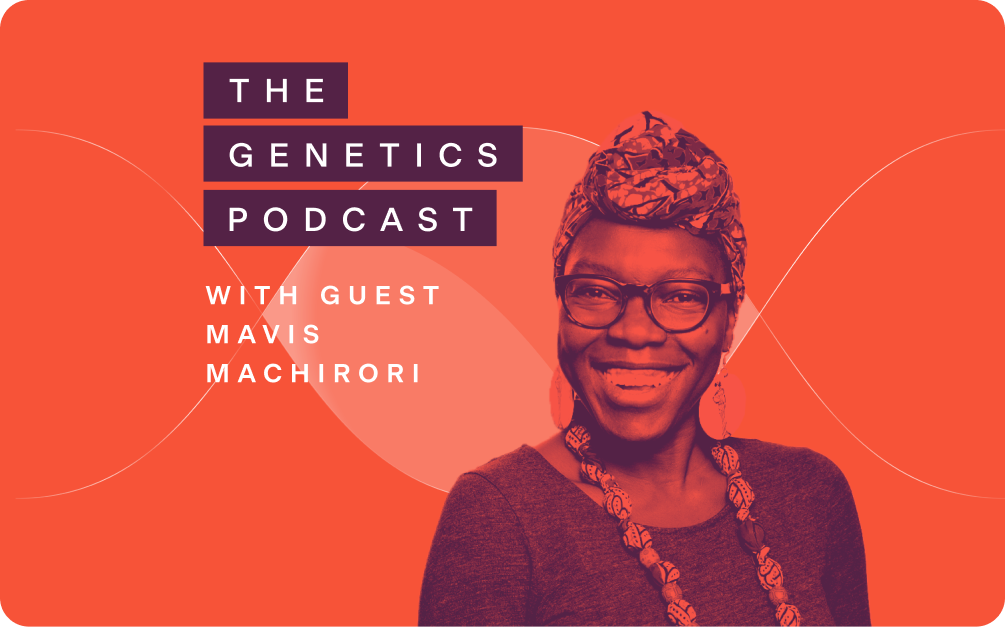The Genetics Podcast recap: Championing diversity and accessibility in genomics with Mavis Machirori

In the latest episode of the Genetics Podcast, Sano CEO Patrick Short had the pleasure of speaking with Mavis Machirori, a senior researcher at the Ada Lovelace Institute and co-founder of Genetics Engage.
Mavis began her career as a midwife, where she witnessed firsthand the systemic inequities in healthcare access. Her desire to address these issues led her to pursue a Masters in Medical Anthropology, which broadened her understanding of the cultural and systemic challenges in healthcare. This background has significantly influenced her approach to genomics research, emphasising inclusivity and accessibility. Mavis brought to the podcast a wealth of experience and insight into the crucial issues of diversity in genomics research and the accessibility of digital health technologies.
Addressing eurocentricity in genomics
A significant part of our discussion focused on the pervasive Eurocentricity in genomics databases and research projects. Mavis highlighted the stark disparity: while only 16% of the world's population has European ancestry, nearly 80% of participants in genomic association studies come from European backgrounds. This imbalance has profound implications for the applicability and effectiveness of genomic research and personalised medicine across diverse populations.
The conversation also explored the complexities of categorising populations in genomic studies. Mavis emphasised the need for clarity and purpose in how researchers categorise and collect data on race and ethnicity. These categories often fail to capture the complexity and fluidity of cultural identities, especially in African contexts. The way we define and use these categories can significantly impact the interpretation and utility of genomic data.
The importance of user-centric design
Mavis stressed the importance of user-centric design in digital health technologies. She advocated for involving a broad range of stakeholders, including target communities, early in the design process. This approach ensures that the technologies developed are relevant and beneficial to those they aim to serve. Often, scientific endeavours focus too much on technical aspects without considering the real-world impact and accessibility for diverse populations.
Global collaboration for equitable genomics
We discussed the necessity of global collaboration in genomics research. Mavis highlighted initiatives like H3Africa and 54gene, which are making significant strides in incorporating African populations into genomic studies. She called for more support and funding for local scientists and researchers in underrepresented regions to ensure that the benefits of genomic research are equitably distributed.
Recent work and future projects
Mavis shared insights into her recent work, including a workshop at Stellenbosch University focused on the African genome. This multidisciplinary effort aims to address the political and social dimensions of genomic research and how they intersect with scientific objectives. She emphasised the need for a more equitable and inclusive research agenda that goes beyond scientific discovery to address broader social and health disparities.
In closing, Mavis expressed her excitement about relaunching Genetics Engage, a group dedicated to addressing the concerns of underserved communities in the UK. This initiative aims to foster more inclusive and representative research practices by engaging directly with these communities and understanding their needs and perspectives.
Conclusion
Patrick’s conversation with Mavis underscored the critical need for more inclusive, representative, and community-engaged approaches in genomics research. By addressing these challenges, we can ensure that the benefits of genomic medicine are accessible to all populations, ultimately leading to better health outcomes and equity in healthcare.
Listen in here:
And as always, you can reach us via the form below.
